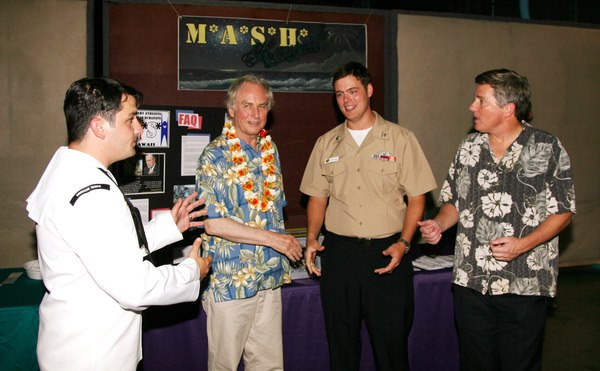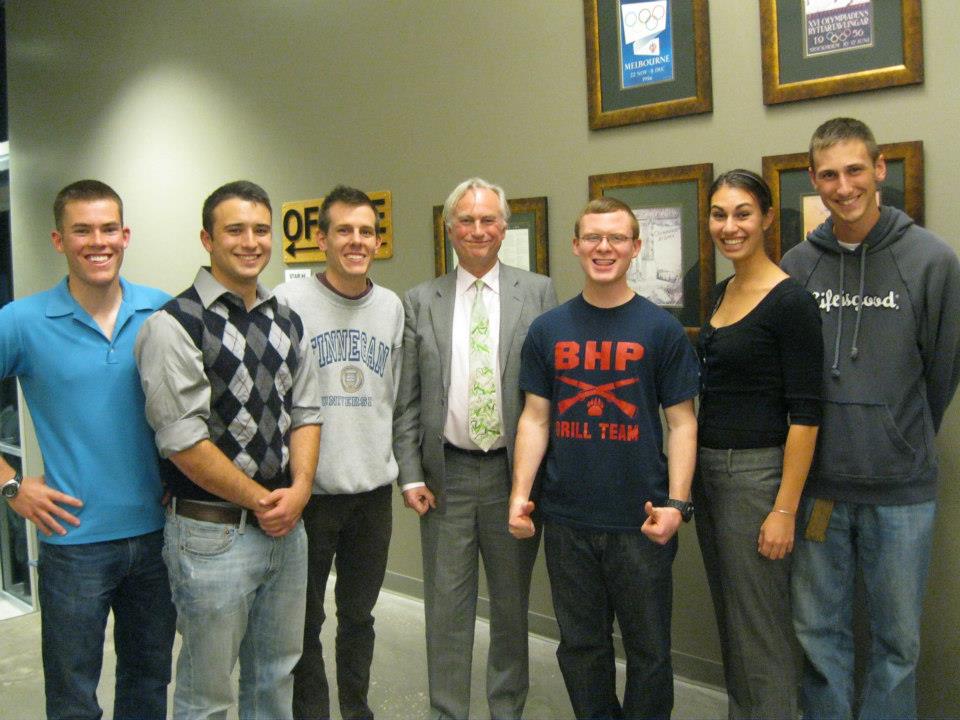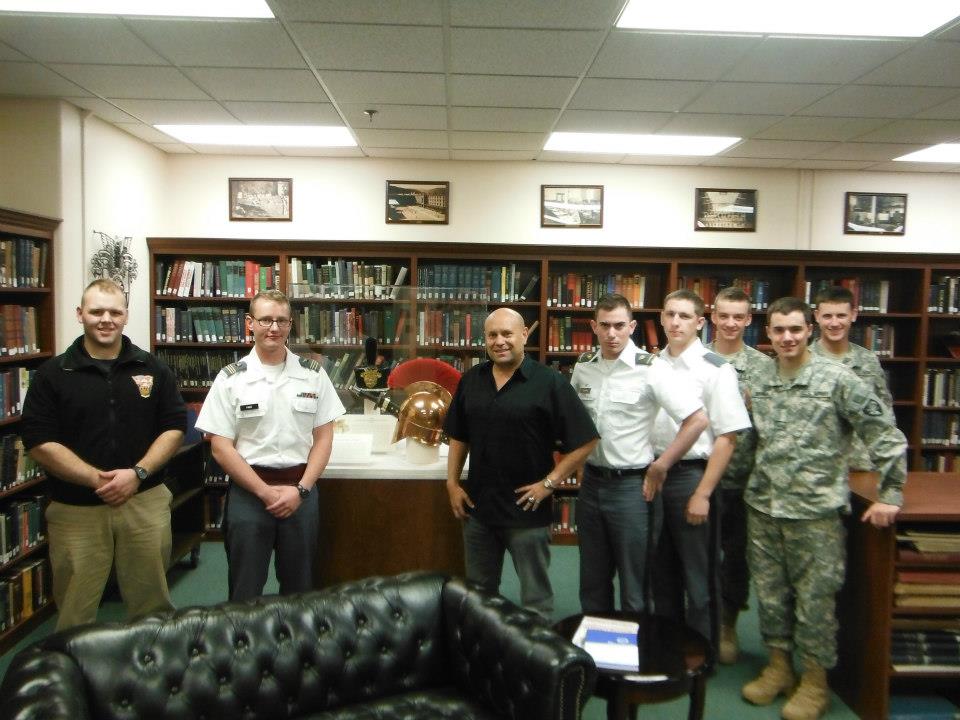Growing Military Humanist Groups Hear Trailblazing Speakers
For too long, local groups of atheists and humanists in the military have operated without recognition and still struggle for equality. This fall, Academy groups have official recognition and openness by officials have made possible great events off and on military installations. Atheists and humanists across the country have exercised their expanding rights with speakers who represent the courage to change culture.
Invited speakers are trailblazers in the movement. In resiliency programs and chaplain programs in particular, there is little accommodation for nontheistic beliefs. From highschooler Jessica Ahlquist to established international scholar Dr Richard Dawkins, these individuals are inspirations for military personnel, young and old, who are challenging a military culture that is not yet welcoming to nontheists.
Richard Dawkins is a scholar revered by the atheist community for, among many things, his ability to express what so many atheists are thinking. He and his Foundation have been extremely supportive of military personnel, including sponsoring care packages for deployed troops. Dr Dawkins spoke at “Shaka Con” to military atheists in Hawaii. Dr Dawkins then traveled to Colorado University in Boulder and extended special tickets and front-row seating to cadets from the US Air Force Academy.
At West Point, cadets hosted Mikey Weinstein of the Military Religious Freedom Foundation and heard him give a talk a SUNY New Paltz. Weinstein will also travel to the Air Force Academy in October for a talk in conjunction with his own 35-year USAFA graduation reunion. Jessica Ahlquist, a high school student from Rhode Island, will be visiting West Point at the end of October to talk about her struggles and the scholarships and support she received from humanists around the country.
Soldiers at Ft Bragg recently hosted David Niose, author of Nonbeliever Nation, in September and will host Andy Thomson, MD, who will speak on the Science of Faith from a psychiatrist’s perspective.
These events highlight just a few of the activities of just a few of the groups and points of contact that represent the MAAF Network around the world, from Japan to Italy, from Ft Hood to Afghanistan, and throughout the EU. These local communities are coming together but continue to struggle due to lack of command and cultural acceptance. They are coming together for mutual support, resilience in the face of stress, and their desire to build character and live well.
MAAF and other groups have questioned the invitation of controversial speakers, including evangelists Jerry Boykin, Franklin Graham, and Clebe McClary. In each of these cases, official invitations were extended to speakers for official Academy events; whereas the humanist speakers and events featured here were off the installation or were private humanist/atheist-only activities. They also were presented with truth in advertising, ensuring that all participants were clear about the nature of the event.
Some speakers may never be welcome due to their extreme and/or discriminatory views. However, military personnel should have broad leeway to host evangelists, advocates, or other controversial speakers at military facilities if they choose. But those inviting speakers in their official capacity with government funds, government facilities, or official events must maintain strict boundaries. In all cases, truth in advertising is important, ensuring that sectarian religious or political events are not billed with misleading titles such as family, community, yoga, or holiday. “Christian” or “Religious” would be too vague to be clear about the nature of the event. Adding a prefix with a specific denomination like Lutheran, Muslim, or even Humanist is important.
As military personnel invite outside speakers, take trips, and host events, there will be an opportunity to develop policy that fairly accommodates personal, political, and sectarian preferences. However, there should be controls to prevent free advertising or proselytism using government resources, to avoid special privileges or emphasis on traditional religious events, and to avoid command promotion of religious events of any kind.



